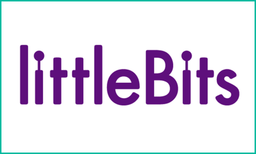
The United States is not producing enough STEM workers to fill the growing number of STEM jobs that are becoming available; in fact, according to some estimates, there will be 1 million more STEM jobs than applicants who can fill them by 2020. Capturing kids’ interest in STEM from an early age is the best way to prepare them for the future of work.
- The majority of adults currently in the workforce (62 percent) report that they weren’t exposed to STEM-related tracks in elementary school.
- Exposing kids to STEM in elementary school -- specifically between the first and third grade -- provides students with the foundation necessary to fulfill an increased number of STEM-related careers.
- Girls are five percent less likely to recall learning STEM concepts in elementary and middle school -- only 18 percent percent of girls learned STEM concepts between ages 5 and 12, while 23 percent of boys learned STEM concepts at the same age.
- The most effective STEM lessons rely on hands-on learning, with 64 percent of respondents listing this method as one of the most effective ways of learning STEM.
Download the full report, “Early Exposure to STEM and Its Impact on the Future of Work,” here.
About littleBits
littleBits is the New York-based education startup that invented the electronic building block. These magnetic “Bits” snap together to turn ideas into inventions, transforming the way kids learn so they can grow up to be tomorrow’s changemakers -- no matter their age, gender, race, nationality, or ability. Up to 40 percent of the kids using littleBits kits are girls, which is four times the industry average.
littleBits was founded in September 2011 by Ayah Bdeir, an engineer and interactive artist. An alumna of the MIT Media Lab, Ayah’s TED talk: “Building Blocks that Blink, Beep and Teach” about littleBits has garnered more than one million views. littleBits, itself, has won more than 150 awards in tech, education, and toys -- including The Toy Association’s 2018 Creative Toy of the Year, Common Sense Education’s “2018 Top Pick for Learning,” CNN’s “Top 10 Startups to Watch,” and one of CNBC’s “Next List.” A STEAM leader at home and in the classroom, littleBits has sold millions of kits in over 70 countries.
For more information, please visit www.littleBits.com.












